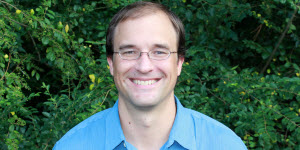For the month of September I’ll be the guest speaker/preacher on Sunday mornings at Cypress Bible Church. The five-week series is titled “A Faith That Can Change the World.” Here’s a brief summary of the second sermon:
Breaking the Sin Cycle
Church, particularly on Sunday mornings, is supposed to be a place where broken people come to worship God. Church is supposed to be a place of grace and forgiveness, a place where love covers a multitude of sins. The tragic irony is that people feel more pressure to look clean and pretty—to appear as though their lives and their families are in perfect order—at church on Sunday morning than at any other place any other time of the week.
There’s something wrong with that.
If we believe that Jesus died for our sins and that He is the the Giver and Sustainer of life, and if we believe that we participate in a faith community that can change the world, then we need to act like it. We need to stop living like mannequins on display with plastic smiles; we need to stop playing nice-nice with God; we need to engage the messiness of life and the struggle we have in trusting God.
In the garden of Eden, we see the sin cycle begin the moment Adam and Eve eat the forbidden fruit. In that moment the trust relationship between God and humankind was broken; instead of trusting God as the Giver and Sustainer of life, we began to trust ourselves, making our own rules, doing what seems right in our own eyes. And in doing so we entered the sin cycle.
The sin cycle begins when we feed the flesh. Just like Adam and Eve, whenever we rely on our own understanding and pursue more of something because we think we need it, or we think we deserve it, or we think it will make our lives better, we’re eating forbidden fruit, we’re feeding the flesh, we’re living apart from God.
As long as gorging ourselves with forbidden fruit gives us the results we’re looking for, we continue to feed the flesh. But when eating forbidden fruit no longer gives us the results we desire, or we fear that we might get caught, we try to cover and hide the truth. Adam and Eve tried to cover their naked bodies and shame with fig leaves, and when they heard God walking in the garden of Eden they hid from God. When feeding the flesh stops working the way we expect it to, we move to phase 2 of the sin cycle—we cover and hide the truth.
Growing up, I had always been told that sin can’t exist in the presence of God. But here, in Genesis 3, in the story about sin entering the world, the first thing that God does is walk in the garden and call out to the man, “Where are you?” Does God not know what happened? Does God not know where Adam is? Of course He does. God is reaching out to the man, God is giving the man an opportunity to come out of hiding and confess to what he has done so that they can begin restoring their broken relationship.
The truth about sin is this: It’s not that sin can’t exist in the presence of God, it’s that sinful beings don’t want to be in the presence of God.
From the very beginning God pursues reconciliation with Adam and Eve. God calls out, “Where are you?”
The question is, “Do we trust God?” This isn’t merely a question for Adam and Eve. We’re all Adam and Eve. We all feed the flesh and hide behind the tree. But what God wants us to do is to step out from behind the tree. God wants us to bring the truth to light and pursue reconciliation with Him and one another.
However, if we’re unwilling to face the truth, then we’ll move to phase 3 of the sin cycle—the blame game. Instead of taking responsibility for their actions, Adam blamed Eve and God, and Eve blamed the serpent. And if we’re unwilling to take responsibility for our actions, then we’ll play the blame game too in order to justify our actions and continue doing what seems right in our own eyes.
So how do we break the sin cycle?
The answer is found in Jesus’ words in John 3:16-21. Not merely in John 3:16 (the most famous verse in American evangelical culture), but the entire passage…
To listen to the sermon, click on the podcast link below.
Podcast: Play in new window | Download
